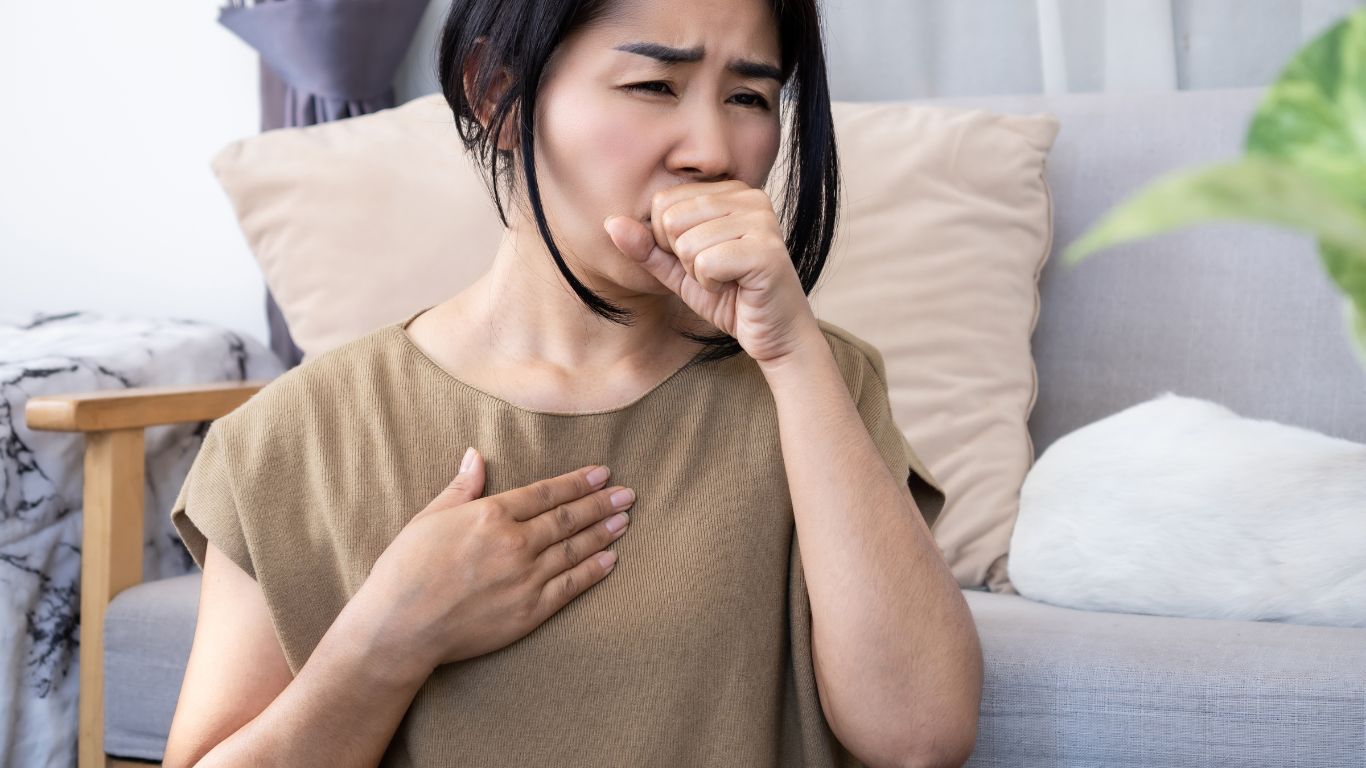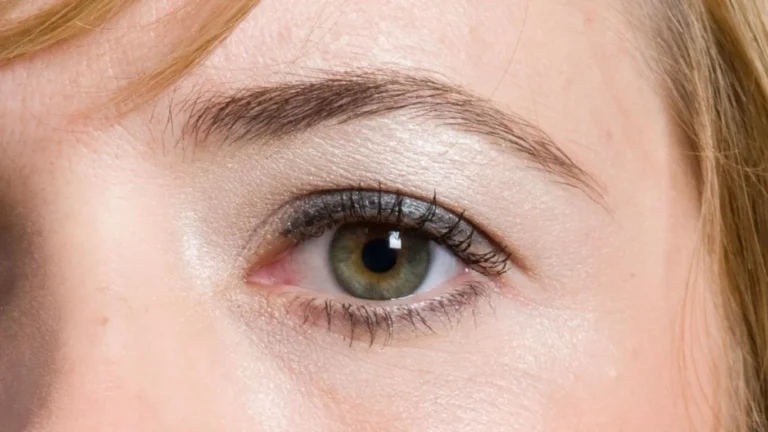GERD and Swallowing Difficulty Symptoms: A Deep Dive
If you’ve ever felt that weird lump in your throat that just won’t go away, or food seems to take its sweet time going down — you’re not alone. I’ve been there too, standing in the kitchen, trying to finish dinner, and wondering why swallowing suddenly feels like a chore. That’s not just in your head — it could be a sign of something more complex, like GERD-related dysphagia.
What Is Dysphagia and How Is It Connected to GERD?

Dysphagia is the medical term for difficulty swallowing — and yes, it’s far more common than people talk about, especially among those living with Gastroesophageal Reflux Disease (GERD). It’s one of those symptoms that tends to creep in subtly, becoming noticeable only when you find yourself needing water just to get down a bite of bread.
GERD, by its nature, involves the backward flow of stomach acid into the esophagus. Over time, that acid can irritate and inflame the esophageal lining, leading to scarring, narrowing (strictures), or even spasms that make swallowing feel awkward, painful, or even alarming. If you’ve ever paused mid-meal thinking, “Did my food just get stuck?” — you may already be familiar with the sensation.
Common Symptoms of GERD-Related Swallowing Trouble
- A persistent feeling of food getting stuck in the chest or throat
- Choking or coughing when eating or drinking
- Burning sensation during or after swallowing
- Unexplained hoarseness or sore throat
- Slow or effortful swallowing (especially with solid foods)
In my case, I initially blamed it on eating too fast or not chewing properly. But the tight sensation wouldn’t let up — especially after spicy meals or coffee. That’s when I learned it was likely related to chronic acid reflux, silently aggravating my esophagus over time.
Why Does GERD Cause Swallowing Difficulty?

The culprit is often esophagitis, an inflammation of the esophageal lining triggered by acid exposure. Prolonged inflammation may result in scar tissue that narrows the esophagus — that’s called an esophageal stricture, and it’s a major reason for dysphagia in GERD patients.
Another major player? Esophageal motility disorders. When acid irritation messes with the natural muscle contractions that push food down, you may experience spasms, hesitation, or even pain mid-swallow. Some people also develop a condition known as eosinophilic esophagitis — an allergic inflammatory reaction that can mimic or worsen reflux symptoms.
Chronic GERD and Damage to the Esophagus
Let’s talk about the long game. Left unmanaged, GERD doesn’t just make swallowing harder — it can cause structural and functional changes to the esophagus. The damage may include:
- Strictures: Scar tissue makes the esophagus narrower and stiffer, restricting food passage.
- Ulceration: Repeated acid burns can cause open sores, making every swallow feel like sandpaper.
- Barrett’s Esophagus: A precancerous condition where the lining of the esophagus changes due to chronic irritation.
According to Cleveland Clinic, these complications are most likely in people who delay diagnosis or rely solely on antacids to push through symptoms. That was eye-opening for me — I used to think popping a tablet after meals was enough. It’s not.
How to Know If Your Swallowing Issues Are from GERD

Here’s the tricky part — dysphagia can stem from many causes: neurological issues, muscle disorders, even anxiety. So how do you know it’s reflux-related?
You’re more likely dealing with GERD-related dysphagia if:
- You experience heartburn or regurgitation alongside swallowing issues
- Symptoms worsen after large or acidic meals
- Swallowing is harder with solids than with liquids
- You’ve had GERD symptoms for several months or years
The best approach? Don’t self-diagnose. A physician may recommend an endoscopy, a barium swallow test, or esophageal manometry to pinpoint the root cause. You can learn more about how doctors properly identify reflux-related problems in our GERD diagnosis guide.
Effective Management Strategies for Swallowing Issues from GERD

Good news: this isn’t something you’re stuck with forever. I used to avoid eating out altogether — just in case I’d feel something get “stuck” halfway through. With the right strategies, though, life can be a lot more comfortable.
Here’s what helped me — and what experts recommend:
- Diet Tweaks: Go easy on acidic, spicy, and fatty foods. Soft, moist textures are easier to handle. Avoid dry meats and tough bread crusts.
- Mindful Eating: Small bites, slow chewing, and upright posture during and after meals work wonders.
- Medical Therapy: Proton pump inhibitors (PPIs), H2 blockers, or alginate-based formulas can reduce acid and promote healing.
- Swallowing Therapy: Speech pathologists can guide you through exercises that retrain safe swallowing patterns.
And if your case involves strictures, a procedure called esophageal dilation might be needed to widen the narrowed area. It sounds scarier than it is — I know people who’ve had it done and were surprised by how effective (and low-risk) it actually was.
Also worth checking out is how soothing the acid burn in the throat can make swallowing more manageable in the short term. That’s where natural remedies and mindful habits can play a huge supportive role.
When to See a Doctor — Seriously, Don’t Wait

Let me be blunt — if you’re dealing with persistent swallowing issues, don’t sit on it. Dysphagia isn’t something to brush off, especially when it comes with weight loss, pain, or any signs of food coming back up undigested. I waited too long myself. A simple consult with a gastroenterologist could’ve saved me months of discomfort and stress.
GERD is more than just heartburn — it can impact how you eat, speak, and function day to day. Recognizing swallowing trouble as a possible symptom of deeper esophageal changes is one of the most important steps in getting back control.
Advanced Treatments When GERD-Related Dysphagia Gets Serious

Sometimes lifestyle changes and meds just aren’t enough. If your GERD has been left unchecked for too long (been there, unfortunately), things might progress to a point where more targeted treatments are necessary. And that’s okay — the key is knowing your options before complications take root.
Esophageal Dilation: What It Is and Why It Helps
When acid reflux leads to esophageal narrowing, doctors often suggest esophageal dilation. It’s a non-surgical outpatient procedure where a small balloon or dilator is used to gently stretch the narrowed part of your esophagus. Sounds intense, but it’s surprisingly quick and safe — I’ve spoken with two patients who said they could eat solid food again the next day without that fear of food “getting stuck.”
It’s especially helpful if you’re experiencing symptoms like:
- Difficulty swallowing solid or dry foods
- Chronic food regurgitation
- Frequent throat clearing or chest pressure
But here’s the catch: if acid reflux continues without control, strictures can come back. That’s why dilation usually goes hand-in-hand with medications or even surgical intervention.
Could Surgery Be the Right Move?

When medications and procedures aren’t enough — or when you’re just tired of living on daily pills — surgery may be an option worth exploring. The most common surgery for GERD is called a fundoplication. It involves tightening the lower esophageal sphincter (LES) to prevent acid from splashing up where it doesn’t belong.
Some people also benefit from newer, minimally invasive procedures like the LINX Reflux Management System, which uses a small ring of magnetic beads to support LES function while still allowing normal swallowing. It’s like giving your esophagus a security upgrade.
Is Surgery Worth It?
It depends. If your GERD is already causing damage or you’re dealing with long-term swallowing difficulty, surgery might not just relieve symptoms — it could prevent more serious conditions like Barrett’s Esophagus. A good GI doctor can help evaluate whether it’s time to consider going this route.
Tips to Protect the Esophagus Long-Term

Even if your swallowing symptoms are mild right now, protecting your esophagus early is the smartest thing you can do. I only wish I’d known how much everyday habits — even things like posture and portion size — played a role in preventing damage. Here are some small but powerful practices that helped me personally:
- Stay upright for at least 30-45 minutes after meals — gravity helps keep acid down.
- Elevate your bed slightly at the head — it makes a huge difference at night.
- Split large meals into smaller portions — overeating is a major reflux trigger.
- Limit trigger foods like citrus, tomatoes, coffee, chocolate, and carbonated drinks.
- Choose soft, moist foods when symptoms flare — oatmeal, bananas, baked sweet potatoes, well-cooked rice, etc.
One of the easiest swaps that helped during flare-ups? Ditching crispy toast for something gentler like a soft rice porridge. Little changes like this reduced that scratchy sensation after eating.
Emotional Toll: GERD and Anxiety About Eating

Let’s be real — constantly worrying about whether food will go down smoothly can seriously affect your social life and mental health. I started avoiding group dinners and even skipped breakfast out of fear. That’s not a healthy cycle.
Studies, including those cited by the NIDDK, show that chronic reflux conditions like GERD are closely linked to increased anxiety, especially around food. This is why many experts are now including mental health check-ins as part of reflux treatment — and it makes total sense.
If you’re constantly stressed at meals, that alone can tighten your throat muscles and worsen swallowing symptoms. Breathing exercises, therapy, and gentle physical activity like walking after meals made a noticeable difference in my daily confidence.
When Swallowing Difficulty Signals Something More

Okay, this part’s important. There are times when difficulty swallowing isn’t “just reflux” — it could be a warning sign of more serious conditions, including:
- Barrett’s Esophagus — where the esophageal lining changes, increasing cancer risk
- Esophageal cancer — especially if dysphagia worsens rapidly or is accompanied by weight loss
- Achalasia — a rare disorder where the esophagus loses its ability to move food efficiently
That’s why it’s vital to speak with a GI specialist if you notice:
- Difficulty swallowing worsening over weeks
- Unexplained weight loss
- Food regurgitation hours after meals
- Chest pain unrelated to exertion
Don’t guess. Don’t wait. Get a proper diagnosis. You can learn more about how these issues are evaluated in our trusted guide on effective GERD diagnosis methods.
Bringing It All Together

If you’ve been struggling with the sensation of food getting stuck, or even mild swallowing discomfort that won’t go away — trust your gut (pun intended). GERD-related dysphagia isn’t just annoying; it’s a red flag that your esophagus is under attack. And the longer it’s ignored, the greater the risk for long-term complications.
Thankfully, today’s GERD management landscape is full of practical solutions, from lifestyle shifts to advanced treatments. Whether you’re adjusting your diet or exploring medical interventions, what matters most is staying proactive — because no one should have to live with fear around eating. I’ve been on that journey, and trust me, with the right steps, relief is more than possible.

Camellia Wulansari is a dedicated Medical Assistant at a local clinic and a passionate health writer at Healthusias.com. With years of hands-on experience in patient care and a deep interest in preventive medicine, she bridges the gap between clinical knowledge and accessible health information. Camellia specializes in writing about digestive health, chronic conditions like GERD and hypertension, respiratory issues, and autoimmune diseases, aiming to empower readers with practical, easy-to-understand insights. When she’s not assisting patients or writing, you’ll find her enjoying quiet mornings with coffee and a medical journal in hand—or jamming to her favorite metal band, Lamb of God.







